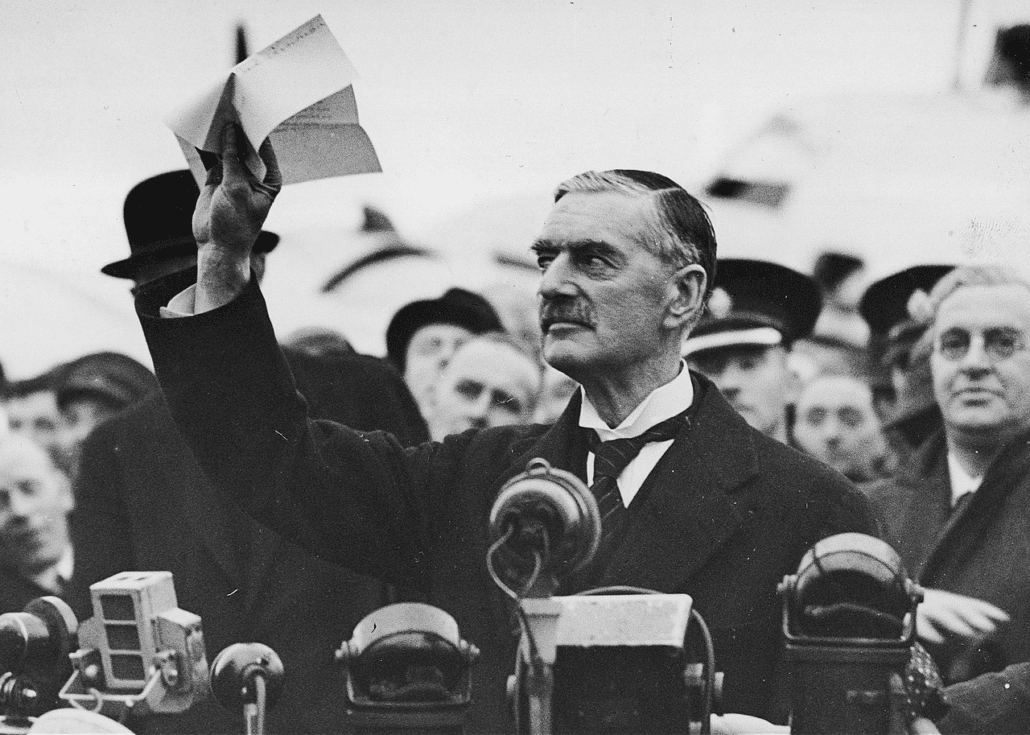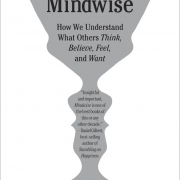Can Geopolitical Decision-Making Benefit from a Little Bias?

A well-established finding from modern psychology is that mentally healthy people are generally overconfident (with men being particularly cocky). What this body of research suggests is that we individually tend to overestimate our abilities, as well as our control over life events, and we also underestimate our vulnerability to risk. We tend to think more highly of ourselves than we really are, in other words—and this can be a good thing. Of course, there can be substantial personal and social costs indulging this sort of positive illusion. But in moderate amounts, and in the right context, overconfidence can present a wealth of benefits. For example, those of us who are the most optimistically overconfident reap many benefits in life, including greater health and career success.
In his new book Strategic Instincts: The Adaptive Advantages of Cognitive Biases in International Politics, Dominic Johnson, a Professor of International Relations at Oxford University, argues that this sort of irrationality can be helpful on grander scales. Among political scientists and policy wonks, it’s widely believed that cognitive biases are not only detrimental, but responsible for some of history’s worst policy blunders. (Think of the Bay of Pigs fiasco, Chernobyl, or the Global Financial Crisis.)
Where, Johnson wonders, was the fundamental attribution error when the world needed it most?
But is this the whole story? Johnson suspects the conventional wisdom on global conflict and cooperation needs an update from the latest scientific findings from evolutionary biology and psychology. He makes the case that cognitive biases act as “strategic instincts,” which can provide politicians with a competitive edge in policy making—particularly in high stakes, and highly uncertain, military confrontations. Seemingly irrational behavior can, with the right dosage and setting, enhance performance in the arena of international politics.
To illustrate this, Johnson takes a tour of recent history, and places a trio of influential cognitive biases—overconfidence, the fundamental attribution error, and ingroup favoritism (also called the ingroup-outgroup bias)—under the microscope.
To start, Johnson argues that the United States benefited in no small measure from a remarkable confidence—arguably overconfidence—that emanated from its charismatic founder, George Washington. Washington’s remarkable overconfidence encouraged him to fight and sustain the revolution against the British—despite the formidable odds stacked against his rebels. In the long and gruelling war in which Americans lost most of the military battles against the Red Coats (and struggled to even keep an army in the field), ambition and boldness, Johnson argues, paid off handsomely.
“I suggest that Washington, in no small part by virtue of his great confidence, was able to turn the tables and seize victory from the jaws of defeat, an achievement epitomized by his daring raid across the Delaware,” Johnson writes. “Joseph Ellis wrote that ‘the British commander, William How, could probably have won the war and ended the American Revolution in November of 1776 with more aggressive tactics. The Delaware crossing thus becomes a sudden reversal of fortune, as if an American mouse, chased hither and yon by a British cat, brazenly turns about and declares itself a lion.’ And lions, not mice, win wars.”
Next, Johnson draws on the fundamental attribution error—a psychological quirk that journalist Robert Wright describes as “the most underappreciated cognitive bias”—to illustrate the logic of strategic instincts. The late Lee Ross coined the term “the fundamental attribution error” back in the 1970s, in a paper that has had an enduring impact on social psychology. Ross found that people generally place too much emphasis on other people’s disposition (that is, on their innate personality and essential nature). Conversely, people tend to put too little emphasis on the situation (that is, on the circumstances that people find themselves in, and how this influences what they do). The fundamental attribution error doesn’t necessarily make us see other people’s behavior as threatening, but it can make us see threatening behavior as intentional.

For Johnson, the fundamental attribution error can lead governments to be hyper vigilant and assume the worst from other states—which would have been helpful in confronting Hitler’s aggression before the outbreak of World War II. Johnson points to the infamous appeasing of Hitler, by the United Kingdom’s Prime Minister Neville Chamberlain, as evidence for the cognitive bias’s effectiveness. Britain’s appeasement of Hitler offers a reverse case where those in power behaved in contrast to what the fundamental attribution error would predict—Chamberlain emphasized Hitler’s situation (the German desire to redress the restrictions of the Treaty of Versailles, and to retain security over their remaining territory), not his disposition. Despite mounting evidence of Hitler’s real intentions, Chamberlain continued to give Hitler the benefit of the doubt—which Johnson claimed led to the disastrous policy of appeasement and the Munich crisis of 1938.
Where, Johnson wonders, was the fundamental attribution error when the world needed it most? There were actors waiting in the wings whose thinking did in fact align with the fundamental attribution error (not least Winston Churchill, who insisted that Hitler was acting out of intentions to aggressively expand German territory and redouble their military power). Had the fundamental attribution error been stronger and more widespread among Western leaders at the time, Johnson argues that Britain could have stood up to Hitler earlier and more effectively, which as a result, would have avoided the atrocities of World War II, like the Holocaust, the Nazi’s genocidal campaign against the Jews.
As part and parcel of our coalitional psychology, we humans have a powerful tendency to favor our own groups and its members, and disparage the “outgroup.” This bias is so strong and ubiquitous that ingroup favoritism is essentially the bread and butter of social psychology. Needless to say, such prejudices can have horrific consequences. The ingroup bias, Johnson argues, has contributed to the oppression of minority groups, inflamed ethnic conflict, and has been implicated in genocide.
But that’s the result of favoring the ingroup to a fanatic degree. In smaller doses and in appropriate settings, ingroup favoritism can be relatively benign and “highly adaptive,” Johnson claims, increasing cohesion as well as coordinated action against rival groups, which together can increase group’s survival and overall effectiveness.
To evaluate these claims, Johnson parachutes us back to the Pacific War between the United States and Japan. He argues that the United States was able to persist and ultimately prevail in the long and brutal Pacific campaign against the Japanese partially due to ingroup favoritism helping bolster the war effort (that is, by increasing cohesion among military personnel, boosting support for the war among Americans at home, and by sealing the commitment of America’s political leaders). The Japanese took outgroup animosity to extreme levels, which sowed the seeds of their downfall, Johnson argues. (The Japanese certainly did not have a monopoly on dehumanization but Japan’s demonization of Americans severely distorted their thinking, Johnson writes, compromising their estimations of risk and ultimately their military strategy).
Subscribe to the Ethical Systems newsletter
In Strategic Instincts, Johnson acknowledges the dark side of these cognitive biases, especially when taken to excesses. That is, when overconfidence becomes hubris, when attribution errors manifests into paranoia, and when ingroup favoritism fuels discrimination and racism. As Johnson states, “the in-group/out-group bias can obviously be a serious impediment to cooperation, peace, and equality between different groups, and we must strive to reduce or manage it wherever it has malicious effects.”
Johnson also points out the pitfalls of only psychologizing instances where things go wrong. If we want a complete understanding of how cognitive biases impact our decision making, we must count both sides of the ledger. To this end, Johnson argues that an evolutionary perspective offers the crucial next step in incorporating psychological insights into the field of international politics.
One may question Johnson’s emphasis on competition and military conflict, rather than on international cooperation. Notwithstanding the oversight of international institutions including the United Nations, Johnson asserts that the world lacks a global “Leviathan,” and is therefore engulfed in competitive anarchy. Despite his Hobbesian worldview, Johnson stresses that global cooperation is possible, and he’s hopeful of humanity’s ability to overcome seemingly insurmountable challenges.
“We need inspiration for solving the collective action problems at the global level more than ever,” he writes. “Here, the current challenges to the planet are especially daunting and difficult, ranging from expanding populations and dwindling resources to species extinction and climate change. Some inspirational confidence in the face of such challenges could make all the difference.”
I think Johnson makes several compelling arguments. That said, there are elements of the book that one could critique. What stood out the most for me is that the latest findings from the field of cultural evolution appear to be missing.
Exhibit A: Although overconfidence is a well-established finding from the field of psychology, cultural evolutionary theorist Michael Muthukrishna and his colleagues have detailed significant cultural differences in how overconfidence manifests.
Much of the literature Johnson cites has been conducted with North Americans and Western Europeans. However, we now know that these people are really WEIRD. That is, they are Western, educated, industrialized, rich, and democratic, which makes them psychological outliers among the world’s diverse human inhabitants. In other words, cognitive biases are not intrinsic human universals, but are prevalent to varying degrees, and manifest in different ways, across human populations.
These points aside, Johnson arguably makes a key contribution not only to the field of international relations, but to psychology itself. For various reasons, seeing cognitive biases as inherently detrimental has become the default assumption of many behavioral scientists. To challenge this prevailing view, Johnson eloquently illustrates how cognitive biases can confer advantages in politics—and what the implications of this are for everyday life.
Which raises the question: What light can Strategic Instincts shed on global politics today? Johnson argues that the biggest question facing international relations may be rising tensions between the United States and China. While the U.S. retains its hegemony in many spheres, Johnson implies that America’s dominance is quickly diminishing. If this trajectory continues, the implications are enormous.
“History tells a gloomy story about rising states. They have rarely risen peacefully, either because they begin a quest for expansion or because other states act to prevent them doing so, or from acquiring the ability to try,” Johnson writes. “Normally, in such a context of rising tensions, overconfidence would be cited as an outright danger. The United States (or China) is likely to overestimate its own capabilities, exaggerate its own level of control over events, and maintain overoptimistic predictions about the future, all of which would seem to increase the probability of deterrence failure, crisis, and war.”
Several intellectuals take comfort in the fact that war has been in steady decline since World War II (what Steven Pinker refers to as the “Long Peace” in his book The Better Angels of Our Nature). However, Johnson clarifies that “while war may be in decline among states, competition is not.” As the human population bulges and temperatures continue to rise worldwide, Johnson suggests environmental stressors may load the dice and increase the odds of territorial disputes. These confrontations may resemble the one now between the U.S and China over Taiwan.
As the scale and complexity of political interactions continues to increase, Johnson warns that mistakes and misunderstandings may become more difficult to avoid. In a bipolar world where two military superpowers are continuously on red alert, the risks of accidental escalation looms large (with the mass deployment of automated weaponry, one may worry not so much about artificial intelligence, but of artificial stupidity).
Despite his sobering analysis, Johnson seems confident (perhaps overconfident?) that the U.S.’s strategic instincts will save the day:
Even if the disadvantages are genuine and likely to cause mistakes, the advantages could outweigh them, avoiding mistakes in the other direction that would be even more costly. It would be easy for a state to shrink back in the face of a rising power, anxious to avoid conflict and hesitant or unwilling to commit to the bold actions necessary to assert and preserve its position. This was certainly Chamberlain’s problem in the 1930s, and Britain paid the price—losing its empire, bankrupting the nation, and nearly suffering an invasion of his homeland as well. As we have seen, overconfidence can serve to increase ambition, resolve, and perseverance, helping to exploit opportunities, deter enemies, attract allies, and provide a competitive edge in strategic interactions. While drawbacks of overconfidence certainly remain in the mix, all of these advantages could conceivably help the United States consolidate and preserve its position vis-a-vis China in the coming years.
Here’s the 30 trillion-dollar question: will overconfidence help avert a large-scale military conflict between the U.S. and China, or will it inevitably lead to disaster?
Max Beilby is a business-psychology practitioner working in the banking industry. He also runs the blog Darwinian Business, which explores business from an evolutionary-psychological perspective, and more.
This article was adapted from a post on Darwinian Business.




